Jersey City Workers Comp Lawyers
We are a team of highly skilled personal injury attorneys. If you have a bodily injury legal issue in or around Jersey City, New Jersey, we can help. Call us today for a free consultation.
Jersey City Worker’s Comp Lawyers
It may sound obvious, but workplace injuries are a common occurrence; according to the Bureau of Labor Statistics, private industry employers in New Jersey reported over 69,000 non-fatal workplace injuries and occupational illnesses in 2022, making for a rate of 2.4 injuries per 100 full-time workers.
With that said, New Jersey has very strict rules about which employers must participate in the workers’ compensation system: Every business with at least one paid worker must carry workers’ comp insurance or have the approval to self-insure; in either case, injured workers must receive both medical and wage-replacement benefits after suffering an on-the-job injury or occupational disease.
Since its founding in 1991, the Jersey City workers’ comp lawyers at Garces, Grabler & LeBrocq have represented injured workers as they navigate the often-complex workers’ comp system. We understand that you depend on your workers’ comp benefits, and thus, we prepare every case we take on as thoroughly as possible.
What Should I Do if I Am Injured at Work in Jersey City?
The workers’ comp system is designed to help injured workers, but insurers still expect them to follow the procedures set out in their state’s workers’ comp laws and regulations. They have no reservations about denying claims, especially when workers fail to follow the rules.
You typically have up to 90 days to report your condition to your employer after suffering an injury or being diagnosed with a work-related disease, but you should act quickly to avoid missing any deadlines.
Typically, you will notify your supervisor, but you can explain your injury to anyone in a position of authority in your workplace, including the human resources department or even the owner. You do not need to provide written notice, nor do you even need to report your injury in person; you can simply tell one of these individuals about your injury via call, text, or email.
That said, keep in mind that your notice must accomplish two things: First, it must directly tell someone in a position of authority; asking a co-worker to tell your boss might not be enough.
Second, it must let your employer know that the incident that caused your injury occurred at work. Your employer must notify their workers’ comp insurer, but that notification can only be made if your employer knows you meet the requirements for a workers’ comp claim.
There may be certain circumstances where you do not need to give actual notice; if someone in authority witnessed your accident or became aware of your accident, they may have what’s known as constructive notice.
Worker’s Comp Claim Process
If you need emergency treatment, you do not need to (nor should you) wait until notifying your employer; seek medical attention and then notify your employer afterward.
For example, suppose your company-issued work truck was involved in a car accident. In such a case, you could receive emergency treatment from paramedics or even take a ride to the hospital in an ambulance before notifying your employer.
After receiving actual or constructive notice of your injury, your employer will notify their worker’s comp insurer; should they fail to do so, you can notify the insurer or the New Jersey Division of Worker’s Compensation, but you should highly consider contacting a lawyer before making that move.
Nevertheless, once it receives notice of the injury, the insurer will open a claim and begin investigating. You may need to discuss what occurred and the injuries you suffered, as well as present copies of your medical records. Afterward, the insurer will either accept or deny the claim.
If it accepts the claim, you will receive medical benefits for your work-related injuries or occupational illnesses. You may also receive wage-replacement benefits if you miss enough work days. If it denies the claim, you can pursue a hearing to review the insurer’s decision.
Some possible grounds for denial include the following:
- You are not an employee
- You were not injured over the course and scope of your employment
- Your injuries are pre-existing conditions
- You were intoxicated, which caused your accident
- You were injured due to unreasonable horseplay or fighting
Since you must present evidence and legal arguments to overcome a denial, you may need a lawyer’s assistance. Contact Garces, Grabler & LeBrocq to discuss how we can help you — we have experience assisting workers overcome denied claims.
What Kind of Worker’s Compensation Benefits Are Provided in Jersey City?
Worker’s compensation pays three types of benefits for work injuries:
MEDICAL BENEFITS
These payments will cover all reasonable and necessary medical expenses to treat and rehabilitate your injury, such as:
- Doctor’s appointments
- Hospitalization
- Surgery and other procedures
- Physical therapy
- Mental health therapy
- Medication
There are some snags to receiving medical benefits, though. For one, your employer can choose the medical providers you see, and their insurer does not need to pay for treatment or therapy from providers not on the approved list.
Furthermore, the insurer can also deny treatment if it believes you or your doctor have sought unreasonable or unnecessary care.
“Unreasonable” means the treatment is too expensive for the benefits it might provide; in response, the insurer might push you and your doctor to find less expensive or more effective alternatives.
“Unnecessary” means the treatment is either unrelated to your injuries or is cumulative with the other treatments you are receiving.
Thankfully, you can sometimes overcome a denial of coverage by showing your doctor recommended the treatment or procedure in the first place.
WAGE-REPLACEMENT BENEFITS
You can seek temporary disability benefits to replace a portion of your wages after you have missed at least seven days of work. These seven days do not need to occur consecutively, and once you miss them, the benefits will cover your future wage losses and retroactively cover your wage losses for the seven-day waiting period.
If you have suffered a permanent disability, such as an amputation or spinal cord injury, you do not need to wait seven days and can instead apply for permanent disability benefits immediately; that said, you should speak to a lawyer to make sure you receive all the benefits due to you.
DEATH BENEFITS
Worker’s compensation insurers pay benefits to family members after a worker dies in a work-related accident or due to an occupational illness. These benefits include funeral expenses and 70% of the worker’s median weekly wage up to a predetermined maximum.
No Fee Unless
GGL Wins
Should I File a Jersey City Worker’s Compensation Claim or a Lawsuit?
There’s both bad news and good news to be aware of after you suffer a work-related injury or occupational illness.
The bad news — aside from being hurt, of course — is that your employer is immune from any lawsuits for your injuries, but the good news is that you can simultaneously receive worker’s compensation benefits and file a third-party lawsuit against anyone other than your employer who contributed to your injuries.
Third-party lawsuits can arise in many situations, such as:
- A negligent driver crashing into you during your delivery job
- A safety strap breaking while you work on a construction site
- Being exposed to toxic pesticides at your agricultural job
In these cases, you might have a claim against the person or business that caused or contributed to your injuries. Your best course of action would be to speak to a lawyer at Garces, Grabler & LeBrocq about a third-party claim; you can often recover payment through a lawsuit that you cannot get from workers’ compensation alone.
Types of Worker’s Compensation
Worker’s compensation wage-replacement benefits come in three different forms:
TEMPORARY TOTAL DISABILITY
Temporary total disabilities arise when your injury or illness prevents you from performing all job activities; that said, the injury or illness is only temporary because your doctor expects you to recover from the injury or illness at some point.
Examples of temporary total disabilities include things such as:
- Broken bones
- Strained muscles
- Torn ligaments
- Repetitive stress injuries
Once you receive treatment and take the necessary time to heal, you should return to your pre-injury health condition.
Temporary total disability benefits cover 70% of your average weekly wage, which you can calculate by adding up your wages for the past six months and dividing the result by 26. New Jersey sets a cap on temporary total disability payments and adjusts that cap annually, but that calculation can help smooth out any ups or downs if your wages fluctuate from week to week.
PERMANENT PARTIAL DISABILITY
Permanent partial disability happens when you suffer an injury that you will not recover from, thus being unable to continue performing some work duties but able to perform others.
Doctors often use the term “maximal medical improvement” to describe permanent disabilities; you reach that point when a doctor reasonably believes your injuries will not improve, even with additional medical treatment or therapy. Thus, depending on your job, an amputated finger might qualify as a permanent partial disability; you will never regain that finger, but you can still perform your job with your remaining fingers.
Permanent partial disability benefits are calculated using a disability rating schedule, which looks at your specific injury and rates its severity. The rating, along with your average weekly wage, determines the benefits you receive.
PERMANENT TOTAL DISABILITY
Lastly, permanent total disability occurs when you suffer an injury that permanently prevents you from any gainful employment. Examples of these injuries include paralysis or brain damage. Permanent total disability benefits cover your average weekly wage for the rest of your working life up to a pre-set maximum.
Common Injuries Related to Worker’s Compensation in Jersey City
Some common work-related injuries or illnesses you might experience include the following:
TOXIC EXPOSURES
Workers in all types of professions are exposed to toxic chemicals that can affect their health if not properly protected. Chemical cleaners, paint, pesticides, and other chemicals can cause brain damage, nerve injuries, and lung damage.
REPETITIVE STRESS INJURIES
Many work-related injuries result from the day-to-day grind as opposed to a specific traumatic event. Repetitive stress injuries include things like:
- Stress fractures
- Worn cartilage
- Arthritis
- Strained tendons and muscles
- Torn ligaments
Any kind of stress will create microscopic cracks and tears in your body, but your body will heal with rest. If you do not rest enough and simply repeat the movements and processes that cause the stresses, the tears and cracks will propagate, eventually compromising the structure and producing pain and inflammation.
BACK INJURIES
Back injuries represent the most common reason for missed work days and a leading cause of worker’s compensation claims. Back injuries can range from muscle strains to disc injuries.
The problem with the latter injury is that it can lead to spinal cord injuries or nerve damage; for example, herniated or bulging discs can press on nerve roots, causing pain, weakness, numbness, and other symptoms in otherwise uninjured body parts, like your legs or shoulders. Furthermore, a fractured vertebra can sever the spinal cord, causing permanent paralysis and loss of sensation below the injury.
BRAIN INJURIES
Head trauma and similarly violent motions can cause the brain to move inside the skull, through the cerebrospinal fluid and meninges, and even strike the inside of the skull.
The resulting pressure and impact can damage brain cells, producing physical, cognitive, and emotional symptoms such as:
- Headaches
- Numbness or tingling in the limbs
- Loss of vision or hearing
- Confusion
- Amnesia
- Clumsiness
- Sleep disorders
- Emotional outbursts
Though these injuries are often severe — severe brain damage may put you into a coma or lead to your death — you can sometimes recover some functions after more relatively minor brain injuries. Therapy, for instance, can help the brain rewire itself around the damaged areas.
Why Hire GGL?
Garces, Grabler & LeBrocq has handled workers’ comp cases since the second day the firm was open, and with over 33 years of experience, our Jersey City worker’s comp lawyers know the system inside and out.
We know how to pursue all the compensation you deserve under the law. Contact us online or at 1-800-923-3456 for a free consultation to discuss your work injury or illness and how we can help you pursue full and fair compensation for it.
No Fee Unless
GGL Wins
We've got you covered.
We are available 24/7/365

OFFICIAL PARTNER OF RUTGERS ATHLETICS
Jersey City Workers Comp Lawyers
Address: 3000 John F. Kennedy Blvd. Suite 311 Jersey City, NJ 07306
Phone: (201) 695-1000
Open 24/7 365
Office:
8:30-6:00 Monday
8:30-6:00 Tuesday
8:30-6:00 Wednesday
8:30-6:00 Thursday
8:30-6:00 Friday
Recent GGL Wins
Medical Malpractice
A 30-year-old pregnant woman went into labor. The doctor failed to take proper steps in the baby’s delivery, making the mother wait in the hallway for ten hours while the baby’s heart rate began to drop. The baby was delivered via C-Section; he was blue from lack of oxygen resulting in Cerebral Palsy.
$14 Million
Verdict
Construction Accident
Mediation award resulting from an industrial explosion causing disfiguring burns and severe orthopedic injuries.
$7,8 Million
Verdict
Auto Accident
31-year-old man who was cut off by another car causing his car to flip over. He sustained head injuries, facial injuries, and half of his pinky finger was amputated.
$3 Million
Verdict
No Fee Unless
GGL Wins
Request A Free Consultation
We've got
You covered
We are available 24/7/365

